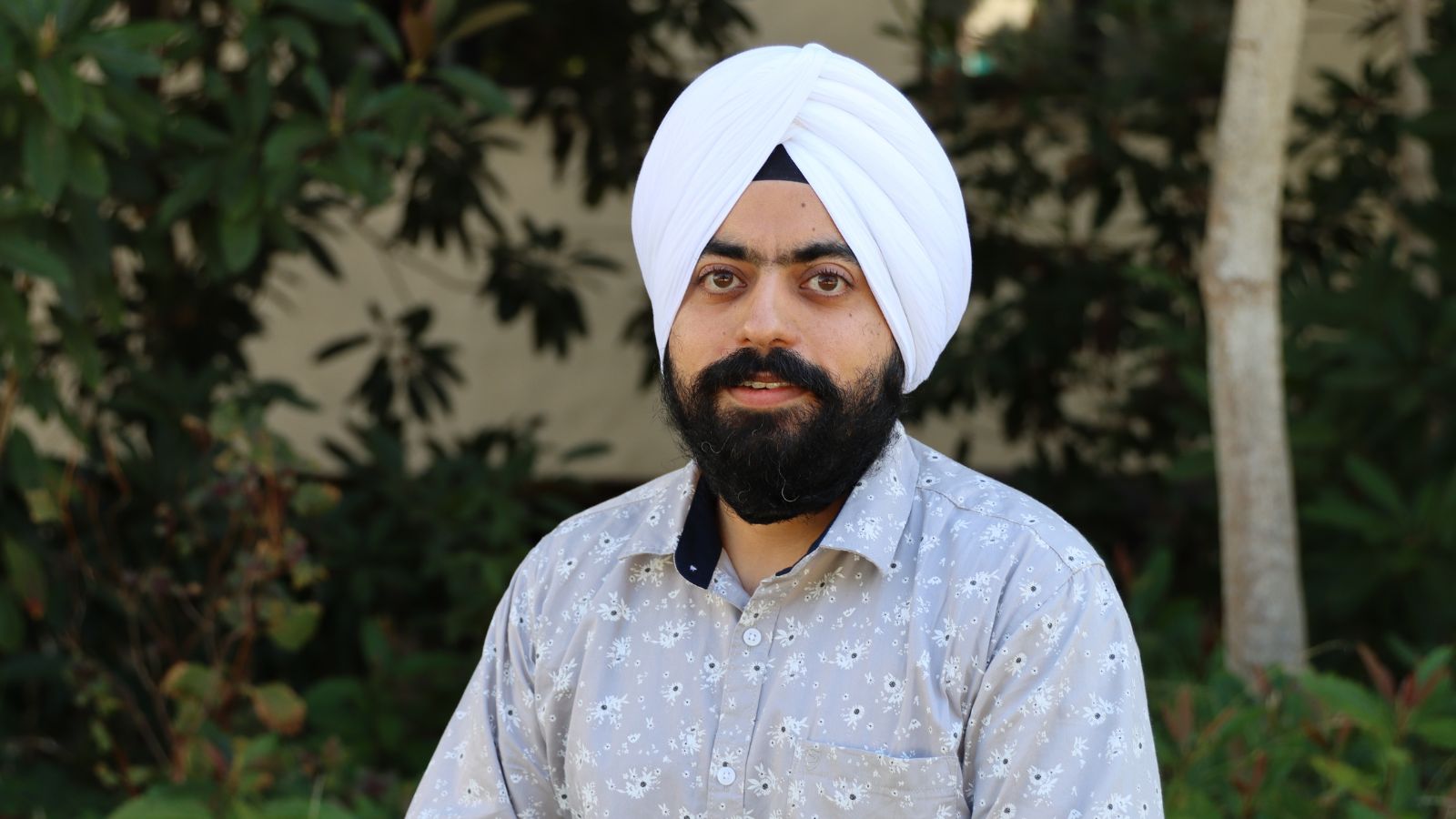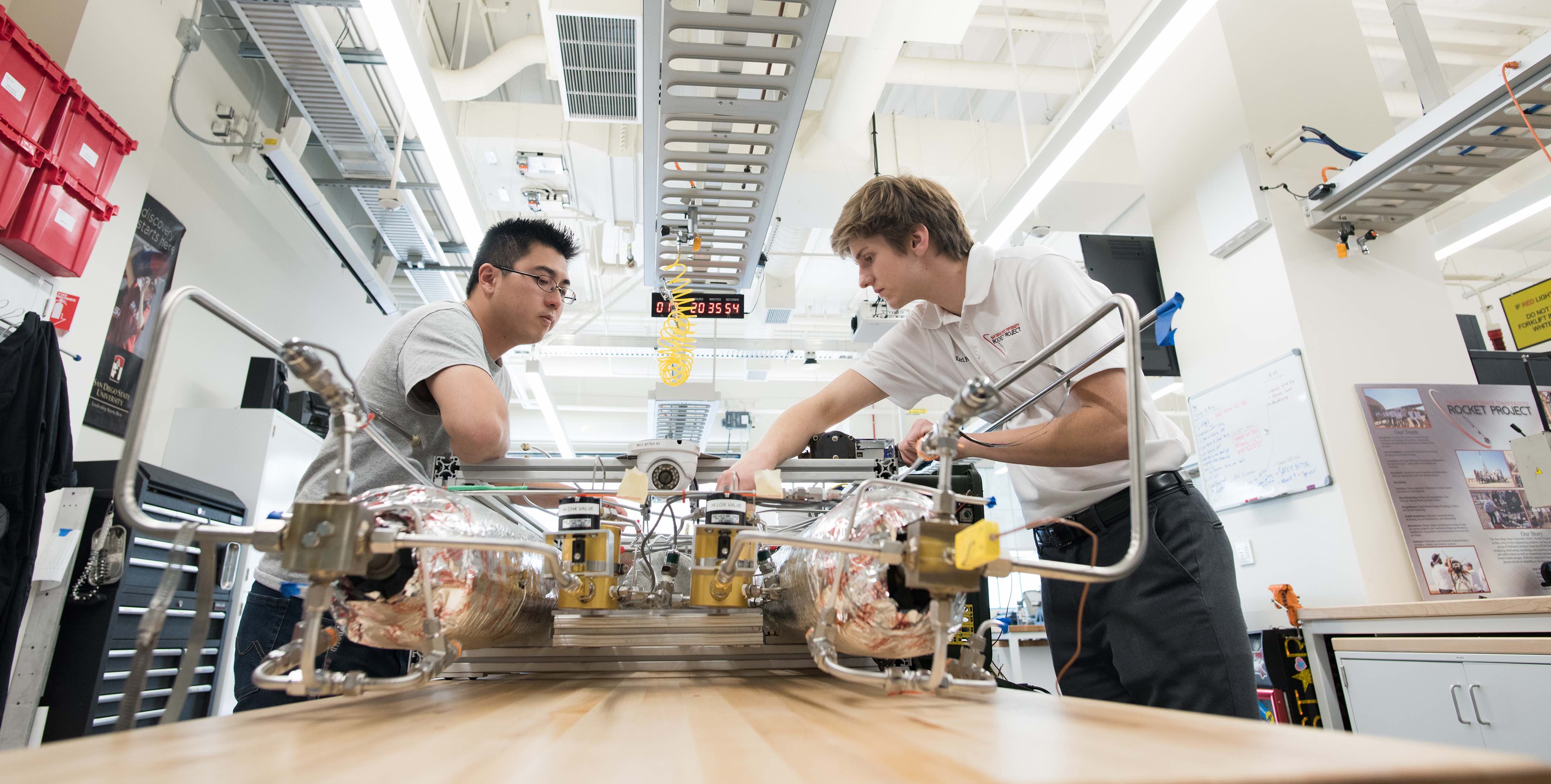A Q+A With NSF CAREER Awardee Amneet Bhalla

San Diego State University Mechanical engineering professor Amneet Bhalla is the latest to earn an NSF CAREER Award.
Bhalla has earned an NSF CAREER Award in the amount of $520,640 over the next five years for his research on computational fluid dynamics. The NSF Faculty Early Career Development (CAREER) Award is the NSF’s most prestigious award for early-career faculty.
In his research, Dr. Bhalla develops numerical methods and high performance computing techniques for computational fluid dynamics and computational fluid-structure interaction problems. The broad goals of his research include developing mathematical models for flow phenomena in engineering devices and processes, and to use novel simulations to interrogate the underlying physics of the problem, with the aim of improving and optimizing the engineering design.
We spoke with Bhalla on his research and his CAREER project, titled, “Consistent Continuum Formulation and Robust Numerical Modeling of Non-isothermal Phase Changing Multiphase Flows.”
How did your childhood and upbringing bring you to your interests in mechanical engineering?
During my early childhood, I was more inclined to pursue medical science than engineering. My interest in mathematics and physics grew as I progressed through high school courses, and I was fascinated by their ability to describe many natural processes around us. Kinematics, electromagnetic waves, and fluid mechanics, all of which I studied in high school, piqued my interest. These topics are covered in a comprehensive mechanical engineering curriculum, and I thought it was the right discipline for me.
What role does numerical methods play in your research studying fluid dynamics, heat transfer, and fluid-structure interactions?
The equations that govern heat and fluid dynamics are highly nonlinear. A closed-form analytical solution to such equations can only be obtained under simplified assumptions. In order to solve this problem, numerical methods are used that approximate the partial differential equations into algebraic equations that can be understood by computers. Numerical schemes that work well in one regime of flow can fail miserably in another. A skilled numerical analyst pays much attention to their algorithms to ensure they are stable and accurate.
Your project will create a numerical scheme to simulate three-phase gas-liquid-solid flows that undergo significant volume shrinkage/expansion. What are the practical applications of your research and how would this benefit an average person?
The numerical advances made in this project will benefit a wide range of applications that involve phase change phenomena. These include latent thermal energy storage for renewable energy, thawing/freezing of biological tissues, thermal regulation of electronics and urban buildings, and freezing/melting of glaciers and lakes. It can also be used to model metal additive manufacturing/3D printing processes to understand how process parameters, such as laser scan speed and power lead to micro- and macro-scale defects in manufactured products. Through this research, we can see what really happens during a phase change process, which is otherwise not possible to observe experimentally.
How will the advanced computer simulations you create be beneficial to the manufacturing and 3D printing industry?
Computer simulations can be used to vary process parameters that can be difficult or costly to change physically. A relevant example is additive manufacturing in microgravity to understand how defects like porosity (trapped gas bubbles) are formed. As a result of this understanding, spare parts can be printed in flight rather than hauled from the launch station, which will be essential in the future of space exploration and tourism. Through computer simulation, the manufacturing industry can also determine the optimal gas flow rate or laser scan speed instead of wasting time and money on costly trials.
How will you help the student community, particularly students interested in computing, through this award?
I intend to introduce a modern scientific computing course that introduces numerical methods, compiled language programming in C and C++, and modern computing software tools such as GitHub and Python scripting. The goal is to produce a skilled workforce that can address complex scientific computing challenges.

